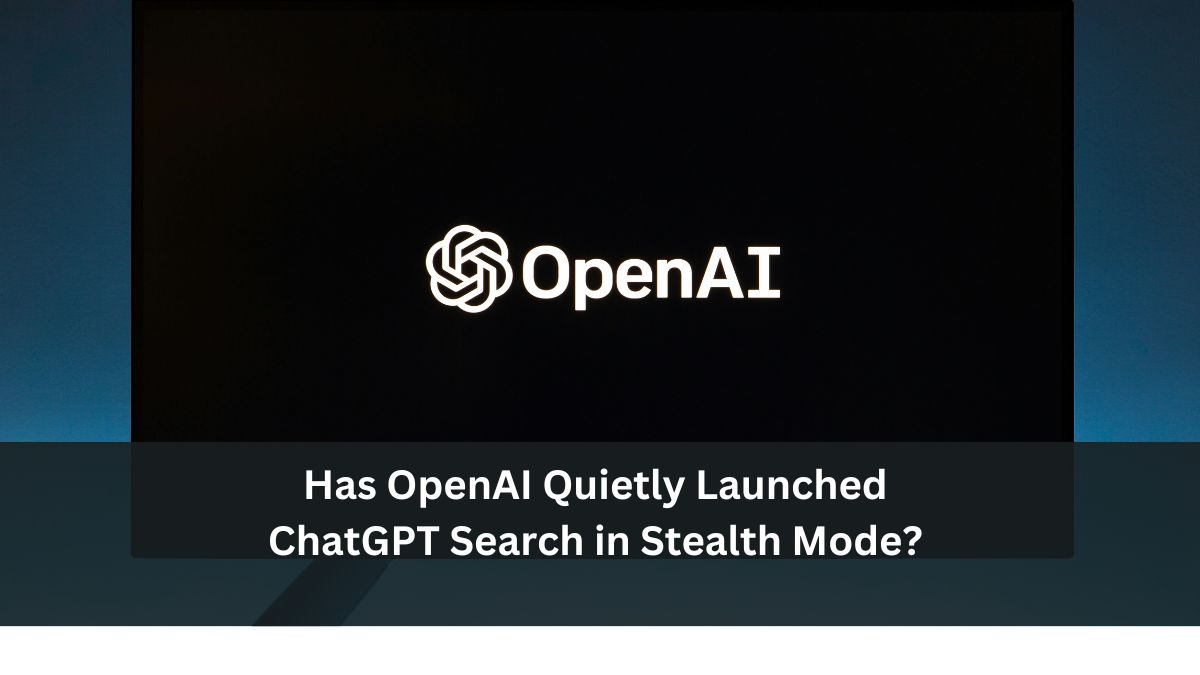AI
Has OpenAI Quietly Launched ChatGPT Search in Stealth Mode?

The Rumored ChatGPT Search Product
In the world of artificial intelligence, rumors and speculation often run rampant. One such rumor that has been circulating is the potential launch of a ChatGPT Search product by OpenAI. While the company did not make any official announcements regarding this product last week, recent developments suggest that an early version of ChatGPT Search may have been quietly released as part of the GPT-4 rollout.
As an avid follower of AI advancements, I’ve been keeping a close eye on the latest updates to ChatGPT, OpenAI’s popular language model. In my personal experience with the free GPT-4 version of ChatGPT, I’ve noticed some intriguing changes that hint at the possibility of a stealth launch for ChatGPT Search.
Web Searching and Site Citations
One of the most notable features I’ve observed in the updated ChatGPT is its ability to search the web and provide citations for the information it presents. When asked a question that requires current information, ChatGPT now informs the user that it is “Searching the web.” After a brief pause, it reveals the number of sites it has searched and lists them accordingly.
This functionality is reminiscent of retrieval augmented generation (RAG), a technique that involves rewriting the query and searching on a search engine like Bing to find relevant websites. Given the partnership between OpenAI and Microsoft, it’s plausible that ChatGPT is leveraging Bing’s search capabilities to enhance its responses.
Interestingly, OpenAI also launched its own web crawler, GPTBot, back in August. This development further supports the notion that the company is actively working on incorporating web search into its language models.
Improved Answer Experience and Source Citations
Compared to Google’s recently launched AI Overviews, ChatGPT’s answer experience stands out, particularly in its prominent linking to sources. In the screenshots I’ve seen, ChatGPT cites reputable sources like 9to5Google and Search Engine Land multiple times, providing users with a clear indication of where the information is coming from.
This level of transparency is crucial in an era where the credibility of AI-generated content is often questioned. By clearly citing its sources, ChatGPT instills a sense of trust in its users and demonstrates a commitment to providing accurate and reliable information.
Crawling and Summarizing Content
Another fascinating aspect of the updated ChatGPT is its ability to crawl links and summarize the information from them. This feature was recently shared on X (formerly Twitter) by Dave Davies, a contributor to Search Engine Land and a speaker at SMX Advanced.
The implications of this capability are significant. By crawling and summarizing content from various websites, ChatGPT can provide users with concise and relevant information without the need for them to navigate through multiple pages. This streamlined approach to information retrieval could potentially reshape the way we interact with search engines and consume online content.
The Future of ChatGPT Search
While the exact nature and scope of ChatGPT Search remain unclear, it’s important to remember that it likely won’t resemble traditional search engines like Google. OpenAI CEO Sam Altman has previously stated that Google is boring and that the world doesn’t need another Google clone.
Instead, I believe that ChatGPT Search will offer a unique and innovative approach to information retrieval and presentation. By leveraging the power of AI and natural language processing, ChatGPT Search could provide users with more personalized, context-aware, and conversational search experiences.
As an AI enthusiast, I’m excited to see how ChatGPT Search evolves and what new possibilities it unlocks. The potential for AI to revolutionize the way we access and interact with information is immense, and OpenAI seems to be at the forefront of this transformation.
Conclusion
While OpenAI has not officially confirmed the launch of ChatGPT Search, the evidence suggests that an early version may have been quietly released as part of the GPT-4 rollout. The ability to search the web, cite sources, and summarize content is a significant step forward in the development of AI-powered search.
As we navigate this new era of AI-driven information retrieval, it’s crucial that we remain vigilant and critical of the content we consume. By understanding the capabilities and limitations of AI models like ChatGPT, we can make informed decisions about how we integrate these technologies into our daily lives.
The future of search is undoubtedly exciting, and I eagerly anticipate the innovations that OpenAI and other AI companies will bring to the table. As always, staying informed and adaptable will be key to thriving in this rapidly evolving landscape.
